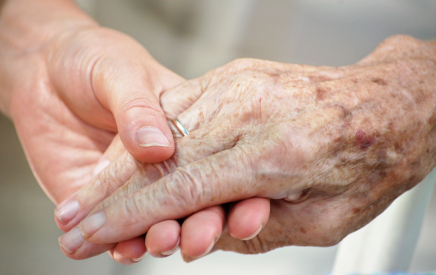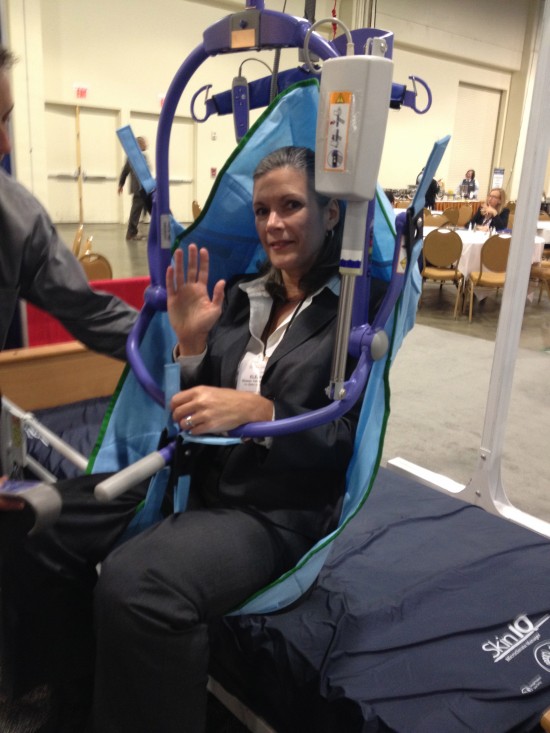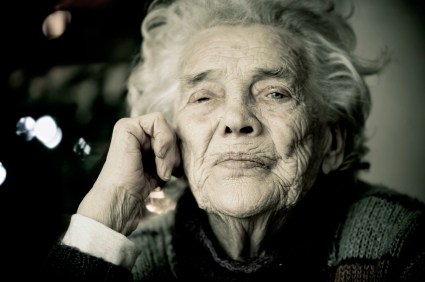Category: Personal Reflections
Posted by Dr. El - August 4, 2015 - Business Strategies, Common Nursing Home Problems and How Psychologists Can Solve Them, Engaging with families, McKnight's Long-Term Care News, Personal Reflections, Resident education/Support groups, Role of psychologists

Here’s my latest article on McKnight’s Long-Term Care News:

I hung up the phone with the managed care case reviewer. The patient in question was in her late 50s, with multiple sclerosis and other physical problems that had unexpectedly interfered with her ability to return home or even to sit comfortably in a wheelchair. Bed-bound, she was irritable with the staff and distressed about the changes in her life, and in financial circumstances that had resulted in this new insurance coverage.
“You can see her for another 30 days,” the case reviewer told me. “After that, I’ll have to send it to a second level review.”
I sat at the desk in the administration office, hyperventilating. What else would need to happen to this resident in order to get more than a month of treatment? An amputation? The death of her only child?
I took my mind to a better place:
I was in my office at the rehabilitation and care center reviewing the psychology calendar for the month:
• This week I’d shadow the east wing staff and focus on team building.
• My weekly open office hours with the staff had several appointments already filled to discuss conflicts with coworkers, finding better ways to interact with a difficult resident, and how an otherwise excellent worker could get to work on time.
• The topic for the August family group meeting was set: How to partner with the staff.
• The monthly staff training topic was planned to coordinate: How to work with families. Other trainings I had in mind were on facing challenges such as aggressive residents, understanding mental illness, dementia without medication and team management of end-of-life care, in addition to handling work/life balance, reducing stress, time management, and coping with loss.
• The data collection for my research project was progressing nicely. Copies of my book, “The Savvy Resident’s Guide,” had been distributed to the recreation therapists, who were using them to run discussion groups with the residents based on chapter topics such as “Working with the staff” and “Making the most of rehabilitation.” Residents were being measured on acquired knowledge, level of anxiety, conflicts with staff and participation in rehab.
For the entire article, visit:

Posted by Dr. El - January 21, 2015 - Customer service, End of life, McKnight's Long-Term Care News, Personal Reflections, Resident care

Here’s my latest article on McKnight’s Long-Term Care News:

There are moments in life that engender important questions. When an individual is born, we ask, “Is it a boy or a girl?” When the person dies, we ask, “What happened?” In long-term care, we’re not around for the first question, but we often are for the second.
Though infrequently observed by those not involved with direct care, how someone dies is a very important part of the culture of the long-term care organization.
In “Remembering the Lost,” New Old Age blogger Paula Span reports on the typical experience of loss in LTC, where deaths are often barely acknowledged. She describes two alternative programs that offer a way to recognize individuals who have lived and died in LTC.
In “Better death notifications could improve CNA work experience, study suggests,” McKnight’s notes that how the deaths of residents are communicated to CNAs affects the way they feel about their work. The best way to find out, the study concludes, is to be told prior to beginning a work shift. The hardest way to learn of a death is to arrive at the resident’s room and find it emptied of belongings or filled with a new resident.
A front-line perspective
Like others performing direct care, I’ve had to cope with the loss of residents. I felt sucker-punched by the deaths that occurred early in my LTC career. My youth, inexperience, denial, and lack of training in issues around death made the demise of very ill or very old residents seem sudden and shocking.
I quickly got some training in thanatology (the study of death) and I’ve had many years of experience since then. I learned to protect my heart and love with a little cushion of distance around me.
Echoing the findings of the study referred to above, my worst experience by far was coming in to work to find the room empty of a beloved patient, the bed stripped and raised as high as possible after the mattress had been cleaned. By contrast, once an aide rushed to me the moment I got off the elevator to visit one of my patients, telling me she’d passed the night before. I thanked her profusely, hurried to the bathroom and cried.
My rituals around loss do still occasionally involve crying in the bathroom, but more often since I learned to protect my heart I look upward and say, “Rest in peace, John.” Or Mary. Or Viola. Sometimes I talk with other staff members who were close to the resident. Or I write about the person who died.
Creating better ways to address losses in LTC
My personal rituals were developed in the absence of formal, facility-sanctioned acknowledgement of the deaths of residents. As a shrink, I was aware of the need to get training and to recognize the personal impact of these losses.
I suspect that many new staff members don’t make it past the “sucker-punch” phase of losing residents. Instead, they quit, so that new staff members must be hired and trained. For ideas on how to reduce this likelihood, read Absenteeism and turnover in LTC? Death anxiety could be the cause.
Facilities can improve the experience of death and dying for the residents, staff and family by addressing various aspects of the process such as:
For the entire article, visit:

Posted by Dr. El - January 16, 2015 - Books/media of note, Personal Reflections

As regular readers may know, I’m a big fan of The New York Times’ New Old Age column, which has been a treasure trove of information on issues related to aging and caregiving. It was founded by Jane Gross in 2008 and continued by Paula Span until the recent decision to discontinue the blog. Paula Span will now write her column twice a month as part of the Health section of The New York Times.
The fact that there was a New Old Age blog was very encouraging to me as I began blogging about my work as a psychologist in long-term care. I’m sorry to see it close in this form and I will follow it to its new incarnation. Thank you, Paula and Jane, for taking on these very important topics.

Posted by Dr. El - November 26, 2014 - Inspiration, McKnight's Long-Term Care News, Personal Reflections, Role of psychologists

Here’s my latest article on McKnight’s Long-Term Care News:

Every year as Thanksgiving approaches, I take a special moment for gratitude and to reflect on the many blessings of my life. I owe a lot of them to working in long-term care, and my LTC career is a blessing in itself.
1. I get the chance to learn from experience — other people’s experience. Talking to elders gives me insight about what leads to happiness and what doesn’t. I’d like to think this has spared me a few mistakes along the road.
2. LTC has improved my perspective. On days when I feel the weight of too many tasks to accomplish, I remember how lucky I am to be physically capable of taking care of my responsibilities. This allows me to focus on constructing a life I’ll be able to look back on with satisfaction when I’m 85 years old.
3. I’m told regularly how much I’m appreciated. Residents express their gratitude for my assistance in various ways. It could be a beaming smile at my approach, finding out from a family member that I’m talked about all the time, or a warm comment like, “I don’t know what I’d do without you.” It’s a good reason to get to work every day.
4. Little things make people so happy. Cleaning off a pair of smudged eyeglasses or changing a clock battery can turn me into a hero. It’s really easy and feels really good.
For the entire article, visit:

Posted by Dr. El - October 16, 2014 - For Fun, McKnight's Long-Term Care News, Personal Reflections

Here’s my latest article on McKnight’s Long-Term Care News:

There’s nothing like the first time you get to meet people, attend education sessions and see the exhibit hall at the American Health Care Association, as I found out last week.
10/5/14, 2 p.m. — I just arrived in D.C. on the Bolt Bus. $40 round-trip from New York City. You can’t beat it with a stick. Now I have to get over to my hotel room and get ready to meet McKnight’s Editor Jim Berklan.
9:30 p.m. — Just came back from dinner with McKnight’s staff members Jim Berklan, John O’Connor, and Tim Mullaney. Really nice guys, really into long-term care. It made me proud to be part of McKnight’s.
10/6/14, 3 a.m. – I can’t sleep.
3:30 a.m. — I just downloaded the AHCA app. Very handy how I can see what programs are available and send them to my calendar.
6 a.m. — Time to get up and get ready for the convention!
8 a.m. — I’m sitting in the session led by Denise Boudreau-Scott, MHA, LNHA, on “Creating the Ultimate Customer Service Experience.” I can download her slides from the app!
9 a.m. — The talk confirmed my perceptions around customer service. I ran into an administrator I used to work with who said how hard it was to create the “ultimate customer service experience.” He should have asked me. I had plenty of suggestions for him. Instead I said, “Mmmm,” the classic noncommittal psychologist response. I’ll bet a lot of shrinks working in long-term care have great ideas for their facilities.
11:30 a.m. — Just heard General Colin Powell speak! He was witty, self-deprecating, on topic, and pointed in his criticism of current Washington politics. I’m very impressed.
1:30 p.m. — I’m in the expo hall now and OMG!!! I’m so excited. I finally got the chance to ride in a patient care lift after years of wanting to try one. (Thanks, ArjoHuntleigh staff.) Now I see what my residents have been talking about. A newer lift has a better angle than an earlier model and almost swaddles the rider, creating a sense of security lacking in the traditional device. Plus, it allows a person to be weighed in the lift instead of having to be transferred to the scale. Of course it costs more. But it seems worth it in terms of customer experience and staff time and effort saved in the weighing process.
For the entire article, visit:

Posted by Dr. El - August 21, 2014 - Communication, McKnight's Long-Term Care News, Personal Reflections

Here’s my latest article on McKnight’s Long-Term Care News:

Like many, I’m taking some vacation time during the month of August. It got me thinking about the ways workers interact with residents when they take time off from their jobs. It’s more important than you might first think.
Notifying residents
I know some staff members whose residents are so attached to them and become so anxious at the thought of them being away, the staff members don’t tell them they’re going. This seems to me like passing the buck to the covering coworkers who have to deal with the anxiety of the residents plus their feelings of betrayal that they weren’t informed in advance.
Other staff members don’t seem to think that residents will be missing them, so they don’t prepare them for their absence. As their psychologist, I know that residents acutely miss their regular staff members and really appreciate knowing in advance that they’ll be gone. When you’re not there – especially if you’re a CNA – it’s a generally bad time for your residents unless there’s been some consideration of the personalities of the residents and covering staff members.
Psychotherapist model
In my training as a psychologist, we spent a lot of time talking about leave-taking, vacation coverage, and termination of therapy. The gist of it is preparing patients for the vacation in advance, talking about who will be there in the therapist’s absence, and ways patients can cope on their own.
I think that’s a good model to follow in most cases in LTC. It’s respectful to let the residents know you’ll be away and to tell them who’s covering or who might be good to ask for help while you’re gone.
Anxious residents
I once treated a very attached, emotionally fragile resident whom I knew would be panicky about my two-week absence, which we discussed at length prior to my departure. Before I left, I gave her a sheet of paper on which I’d written down the dates I’d be away, the names of staff members she could talk to if she needed help, and healthy activities she could engage in such as journaling or talking to a friend. At the top of the paper I wrote in big letters, “I will return on September 14th.” When she saw that, she laughed with relief.
For the entire article, visit:

Posted by Dr. El - January 13, 2014 - McKnight's Long-Term Care News, Personal Reflections, Role of psychologists, Stress/Crisis management

Here’s my latest article on McKnight’s Long-Term Care News:

In my last post, I wrote about some of the many things I do for residents as a long-term care psychologist. The astute reader will note that most of the tasks were accomplished during work hours and within the facility. There’s a reason for that.
When I first started out as a shrink, I worked at the Manhattan Psychiatric Center, a setting similar to many nursing homes in that residents didn’t have access to stores and other amenities. “Next time you’re in the supermarket, will you get me some of that lotion I like?” “Can you buy me a new watch battery?”
The small requests were never-ending and because they were so small, I felt I couldn’t refuse.
And then there were the tasks I volunteered for because I could see the need and I was, you know, a nice person.
The breaking point came after I offered to darn a sweater with a small hole in the front. It was only after I got the sweater home that I discovered the large holes in the back. During the hours of mending — I didn’t want to go back on my word — I realized I had to set some limits on these “extras” or I’d quickly burn myself out on my chosen career.
Establishing limits
Knowing I was in this for the long haul, I created a personal “no errands” policy. The exceptions are endeavors that connect residents to their loved ones, such as obtaining and mailing out holiday cards. (And, I admit, I relish Internet searches for estranged family members.) On the occasions where I’m tempted to do something really special, I soul-search and sometimes consult with an advisor to determine if it’s something I’d do for any of my residents or if I’m going too far for one particular person. It’s important to be fair, especially in the “small-town” LTC environment.
Potential for burnout
For the entire article, visit:

Staying in balance while leaning on each other
Posted by Dr. El - October 17, 2013 - Customer service, McKnight's Long-Term Care News, Personal Reflections, Resident care

Here’s my latest article on McKnight’s Long-Term Care News:


I used to live in a fabulous old fourth-floor walk-up apartment in Manhattan. When I moved out of Manhattan to a borough of New York City for an elevator building with a laundry room in the basement, I made a conscious choice to pick a place I could live for the rest of my life if I had to. That ramp could come in handy if I need a wheelchair, I reasoned. And if worse comes to worse, I’ll move into a nursing home and blog from there.
A lot of residents tell me, “I never thought this (living in a nursing home) would happen to me.” After hundreds of these conversations, I have the opposite approach. I figure, “Why not me?”
But actually, I wouldn’t want to live in any of the nursing homes where I’ve worked. Sure, if I had to, I’d make do. I’d rabble-rouse and kvetch and roll to the administrator’s office if the situation called for it. I’m ready for a fight.
That was my thinking until last week when I toured the eldercare home of my dreams.
For the entire article, visit:
.
Posted by Dr. El - May 30, 2013 - Anecdotes, For Fun, Inspiration, Personal Reflections, Something Good About Nursing Homes

Here’s my latest article at McKnight’s Long-Term Care News:

Someone posted a story I Liked on Facebook about an 85-year old woman who graduated from college and already had a job offer. “She’s my new hero!” a Friend commented. That got me thinking about all the resident heroes I meet at work every day. They’re the ones who help me along the journey to having the kind of life I can look back on without regrets when I’m in my nursing home room in my senior years.
Lesson No. 1: Chutzpah
Back when I first started in long-term care, I was called upon to work with many younger residents who were admitted to the facility as a result of unfortunate incidents that occurred while they were taking a walk on the wild side. Their still-wild ways weren’t going over so well in the nursing home, but I admired how they stood up for themselves and their rights.
“Everyone knows not to mess with me,” one young lady declared, “because if they do, I’ll have a hit put out on them.” Wow! Now that’s assertiveness! I thought to myself, as I worried about the nuances of phrasing a request to a coworker.
Yes, threatening to put out a hit on someone was on the extreme side of the assertiveness scale, but wasn’t it possible I was too far on the mild side? Those young residents helped me edge a notch or two closer to asking for a reasonable amount of what I want and need from others.
Lesson No. 2: Keep on keeping on
Nina and Roberta had a routine. In the mornings, they sat in the lobby and greeted all who entered the facility. At lunch, they went from table to table and wished everyone well before dining. In the afternoon, they visited the very ill and prayed with them before returning to the lobby to welcome the evening shift.
In a private discussion with Nina, she talked about her younger years when she preached with her sister on the streets of New York City. Nina is my role model because she lived her whole life doing what she loved, adjusting for changes along the way.
Lesson No. 3: Live for today

Posted by Dr. El - February 6, 2013 - Anecdotes, Personal Reflections


Over the years, I’ve spoken with hundreds and hundreds of people whose daily lives were interrupted by a health crisis that led them into long-term care. They’ve told me how challenging it can be and we’ve discussed the changes that have occurred and how to adapt to them. If they’re going back home, we talk about how to minimize the chances of another fall or how to make use of supports in the community. I understand it’s a stressful time and have a blog post that specifically addresses the stress of nursing home admission. I thought I “got” it.
Then last week I was called for jury duty, plucked out of my life in the middle of a hectic time. I’ve done it twice before, including a month of grand jury service, so it wasn’t that I was opposed to serving — it just wasn’t a good time. But since I’d already postponed once and I didn’t foresee a less hectic period in my life for, say, another 10 years, I showed up at the courthouse to await my fate. I was anxious, though, because I have my job to do and blog posts to write and then there’s the New York City school bus strike — another unpredictable, uncontrollable event taking me out of my routine for hours at a time.
I sat in the holding room until late in the morning before I was called for a medical malpractice trial. A group of us filed into the courtroom and the judge proudly announced that he runs the longest trials of anyone in the district and we could expect to be there for 2-3 weeks. (What!????) We broke for lunch and I rushed to run a job-related errand, making it back to the courthouse in the nick of time. The judge allowed those who thought they couldn’t provide 2-3 weeks of jury duty service to make their case. I waited on line for my chance to speak to him privately and watched him send potential jurors back to their seats, saying “That’s not an excuse” or “We can work with that. Sit down.” Nervously, I approached the bench with three reasons I couldn’t be out of my life for that length of time. I began with the school bus strike and the judge interrupted me. “Your first reason is good enough.” He sent me back to the jury pool where I sat for an hour and half before being given notice that I’d served my time and wouldn’t be called for another four years.
The next day I spoke with a man who’d been in the nursing home since before the holidays and was wondering when he’d be going home. He’d been referred for psychological services because he’d been irritable with the staff. I explained the discharge process as I have so often in the past, but this time I felt his anxiety in a whole new way. I’d only been called for jury duty and still I’d felt for a few days like my life was out of my control. This man had fallen, been taken to the hospital, and then to the nursing home for rehab. He’d missed Christmas, New Year’s, and his wife’s birthday, and was waiting on a host of other people to tell him when he could go back to his life. I was humbled. He was handling things so well.






















